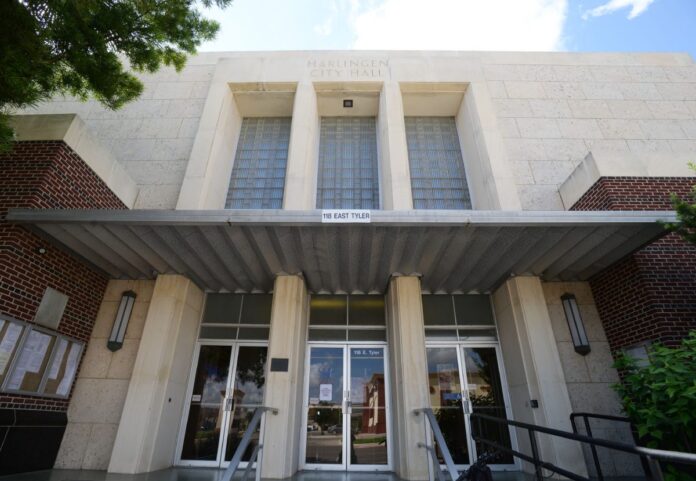HARLINGEN — This year’s historic winter storm is burning into pocketbooks across the Lone Star State.
Now, the state’s power grid is hitting customers with mind-boggling electric bills blamed on February’s deep freeze.
In Harlingen, City Hall is stuck with a blood-curdling $649,128 bill to cover unrestricted record rates charged from Feb. 14 to 20.
Soon, property owners are likely to see their monthly bills soar.
“The winter storm will cost everyone in Texas money,” Margaret Somereve, executive director of the Texas Coalition for Affordable Power, a group of cities banding together to buy electricity, said Friday. “It’s just a matter of when and how it gets billed.”
Earlier this week, city commissioners started thinking about how they’re going to pay off Harlingen’s mammoth bill.
At City Hall, Mayor Chris Boswell mulled negotiating payments while lawmakers worked to pass legislation aimed at slashing rates and stretching out monthly terms.
“I know everybody got hit,” he said. “All the other cities got similar bills.”
Meanwhile, Assistant City Attorney Allison Bastion said she worked to extend a May 21 payment deadline to June 18.
ERCOT passing down costs
During a presentation, Robert Rodriguez, the city’s finance director, told commissioners the Electric Reliability Council of Texas, or ERCOT, which manages the state’s electric grid, charged a $32 million bill to Gexa Energy, a Houston-based retail power provider which is passing costs to the city.
In the Valley, McAllen officials are grappling with a $1.2 million bill, Boswell said during Wednesday’s special meeting.
“About 75 percent of the state got a bill from ERCOT for this,” Assistant City Manager Gabriel Gonzalez told commissioners.
Payment options
Amid discussions, Rodriguez said Gexa is offering the city options including making a lump-sum payment of $649,128, sending 19 payments totaling $664,781 or breaking down the bill into 91 payments totaling $884,550.
Across town, Valley International Airport, the Harlingen Municipal Auditorium, the sanitation department, the Harlingen Convention Center, the Harlingen Arts and Heritage Museum and the Tony Butler Golf Course ran up much of the costs, he said.
The company is also giving cities the option of negotiating payments, Boswell said.
“This is something we can ask to negotiate,” he said. “A letter that I saw indicated that if none of these options work for you … we could negotiate something different.”
But Boswell said he wants Gexa to break down the bill.
“Personally, I would like to see more information,” he said. “I’m not clear about exactly what these charges are for. Have we seen any itemization for exactly what, other than the apportionment to the various buildings? I would like to see things in writing, like itemization, exactly how these additional charges originated and who they’re paid to, how Gexa is being billed for those charges and who’s billing them.”
Lawmakers working to extend terms, slash interest rates
Meanwhile, lawmakers have moved House Bill 4492 into the Senate.
“The Legislature is working on some kind of a legislation that would secure ties to some bonds that would allow entities that have gotten hit with these large bills to be able to pay them out over a much longer period of time at a greatly reduced (interest) rate,” Boswell said.
Costs trickling home
In response, Somereve told Boswell she would present the billing information in writing.
“Those charges are billed to Gexa from ERCOT based on the ancillary service charges that were accumulated during the storm period,” she said. “What happened during the storm is prices went up to extremely high levels that no one knew could happen and that’s why these bills are happening.”
Soon, the storm’s costs are coming home, she said.
“Everybody in the state — eventually residents — will see higher rates as well because of the winter storm,” she said.
In San Antonio, which generates its own power, officials are considering charging customers an extra $9 to $15 a month, a media report stated this week.
Background
During the storm that dropped temperatures below freezing, factors including frozen gas pipelines led electricity generators to pump insufficient power into the state’s electric grid.
So ERCOT turned to “ancillary” electricity providers, who charged $25,000 per megawatt because the industry doesn’t require them to keep costs at the state’s cap of $9,000 per megawatt, Somereve said during an interview.
Through the storm, power outages blacked out much of the state as ERCOT ordered AEP Texas and the state’s electric companies to remove power from the electric grid to avoid overloads that could damage the system made up of power lines.





